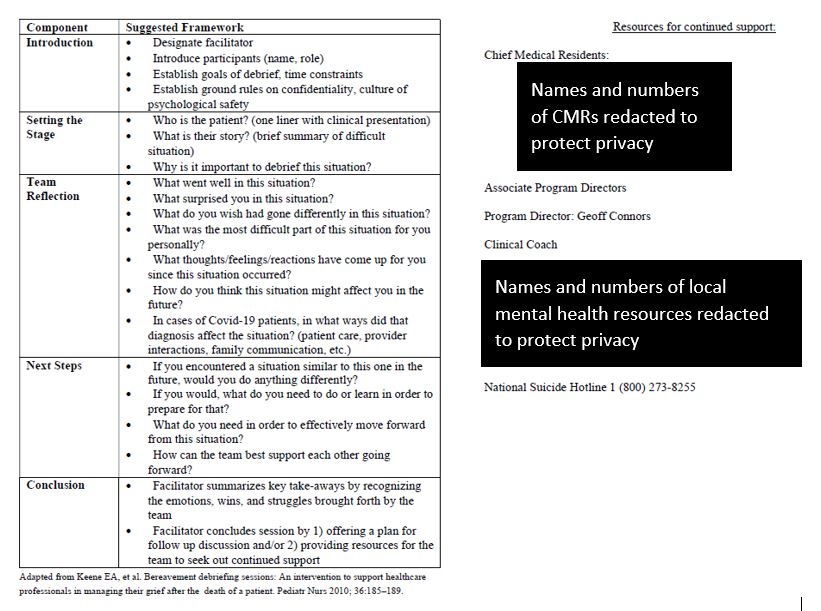November 10th, 2020
Why I Wore All Black That Day
Sneha Shah, MD
The death of Ruth Bader Ginsburg
Even the sharpest dressed attendings come to work donning scrubs in the time of COVID. I was no exception. Halfway through my 2 weeks on service, I appreciated the extra comfort my blue scrubs provided. Then, on September 19th, I wore all black. Those accustomed to seeing me in scrubs commented that I was dressed “nicely.” But for me, it was no ordinary Saturday. It was the day after the death of Ruth Bader Ginsburg (RBG).
RBG served on the US Supreme Court for 27 years – 1 year short of my current lifespan on earth. It is no secret that Justice Ginsburg fought tirelessly for women during her tenure on the Supreme Court. I cannot help but think that a large part of where and who I am today is due to her dedication to women. As I am not a law expert, I refer you to this article on History Channel’s website. But, as this is a blog about the lives of doctors, why am I talking about the death of a lawyer?
Same person, different grief
Despite my as-yet-short career in medicine, I am no stranger to patient deaths. But the nature of being a physician means one typically needs to move on quickly. The next patient demands your full attention — cognitively and emotionally. The lack of grieving is rampant in medicine — as echoed by this New York Times piece. Quite rarely have I let the death of a patient affect me outside of the hospital. If it did, I found an outlet to cope: journaling, a dialogue with friends and family, or distractions. RBG’s death, unlike the deaths of patients for whom I’ve cared, impacted me heavily. I cried on my way to work, I cried in my office, I was somber all day. I wore black to silently mourn. You may not recall, but a mere 2 hours after her death, the media was reporting on ideas about ‘who will replace her?’ ‘will she be replaced before the election?’ ‘what are the pundits predicting?’ Everyone else moved on from her death as quickly as I usually move on after the death of a patient. This bothered me profoundly. It also ignited in me an introspection about whether my approach to difficult moments in the hospital (like death) needs maturation. A topic that a previous chief blogger, Dr. Bhardwaj, wrote about so eloquently.
Making the time and space
Likely a manifestation of years of suppressing grief as a physician, the death of a woman I admired so much, at a lousy time that was wrought with emotions, unleashed my grief. I find it more important now to start my journey of allowing myself to feel “negative” emotions in the hospital. Luckily, a few of my colleagues have been working on a project to help me to do just this!
Drs. Joanne Chiao and Marissa Martin, residents in our Internal Medicine program, recognized the need for debriefing sessions after traumatic events in the hospital. Their experience was similar to mine — no time or space to grieve. Adapted from Keene et al. (Pedriatr Nurs 2010 36:185) and assisted by leaders of our More Than Medicine Committee, they developed a debriefing pocket card (original idea derived from Govindan et al. [MedEdPORTAL 2019; 15:10809]). I look forward to the resident response to this intervention and their collective debriefing experiences. While the laws assented by Justice Ginsberg are larger in magnitude than a debriefing card, it is by implementing simple solutions that large scale change becomes possible. These small actions multiplied by days and people yield eradication of stigma surrounding physician grief — especially in the hospital.

Courtesy of Dr. Joanne Chiao, Dr. Marissa Martin, Dr. McHale Anderson, Dr. Adrienne Mann, and Dr. Roxana Naderi.
Why I wore black
A pioneer in her own time, I like to think RBG would be proud of this generation of physicians. We have endured inaction on climate change, faced a politicized pandemic, and been awakened by the social injustice which surrounds us. In speaking up, we’ve been told to “stay in our lane.” I wore black to mourn the silence that fell when a woman died who gave a voice to generations of women. I mourn that she died in a time when we are deprived of acts of comfort like a hug. Being emotional or taking the space to debrief or grieve only makes us stronger physicians. Using RBG’s example, I will no longer remain silent under the taboo of shame surrounding negative emotions in the hospital. I will grieve. And I will wear black the next time I need a reminder of needing to do so.
Categories: About Residency
Tags: death and dying, grieving, Physician grief, reflections, resident experience, ruth bader ginsburg
You can follow any responses to this entry through the RSS 2.0 feed. Both comments and pings are currently closed.
5 Responses to “Why I Wore All Black That Day”

2021-2022 Chief Resident Panel
Abdullah Al-abcha, MD
Mikita Arora, MD
Madiha Khan, DO
Khalid A. Shalaby, MBBCh
Brandon Temte, DO
Resident chiefs in hospital, internal, and family medicine
Learn more about Insights on Residency Training.
Most Commented
-
Follow Insights on Residency Training via Email
 NEJM Journal Watch – Recent General Medicine Articles
NEJM Journal Watch – Recent General Medicine Articles- How Effective Is Intermittent Fasting for Weight Loss?
- Can Anyone Build an AI Chatbot That Spreads Health Disinformation?
- As-Needed Albuterol/Budesonide for Mild Asthma
- Observations from ID and Beyond: The Mystery of the Isolated Hepatitis B Core Antibody, Solved
- Initial Management of Carpal Tunnel Syndrome
-
Tag Cloud
- Academic year advocacy aging art of medicine attending burnout Career Chief Resident Christmas communication community Coronavirus COVID-19 diabetes end-of-life care evidence-based medicine family medicine healthy choices Internal Medicine international medicine job interviews medical education medical students mentors oncology Pandemic patient care pediatrics Physician grief reflections Residency residency interview resident autonomy resident blog resident burnout resident experience resident wellness social justice student experience teaching technology thanks Ultrasound vaccinations wellness




Grief like every other emotion is a legitimate part of the human experience and I like how you chose to legitimize it. I think it was Carl Jung who said ” What we resist, persists” which really echoes the importance of seeking time to feel negative emotions. Thank you for making the time and space to discuss grief and share actionable steps to navigate these unchartered waters especially in healthcare.
RGB was a symbol of empowerment, she represented what it meant to reimagine the status quo, she represented what it meant to challenge conventions and it is amazing to see that it is also what you are doing. Her legacy will live forever 🙂
Thank you Doctor for expressing your feelings about the passing of Ruth Bader Ginsburg. Her significance to the world was enormous and her influence insurmountable……Caroline, Psychiatric R.N.C.
I fully support the debriefing card and the support of all involved. Perhaps include other staff in Nursing and support staff once in a while to remind each other if their shared humanity
I completely empathize with the way we have to quickly move on. My grief about patients usually comes 24-48 hours later when I find the head space to process. Thanks for acknowledging her and the need for us to grieve.
Sneha, it’s awesome that you’re being vocal in all the ways you choose (speaking up, wearing black, etc) to voice your grief. I’m realizing that as we all process grief differently (eg as Stephanie mentions, maybe it takes a few days for some to really process things), it is important for us to each identify our own mechanism of grief processing and coping that may be different from our colleagues!